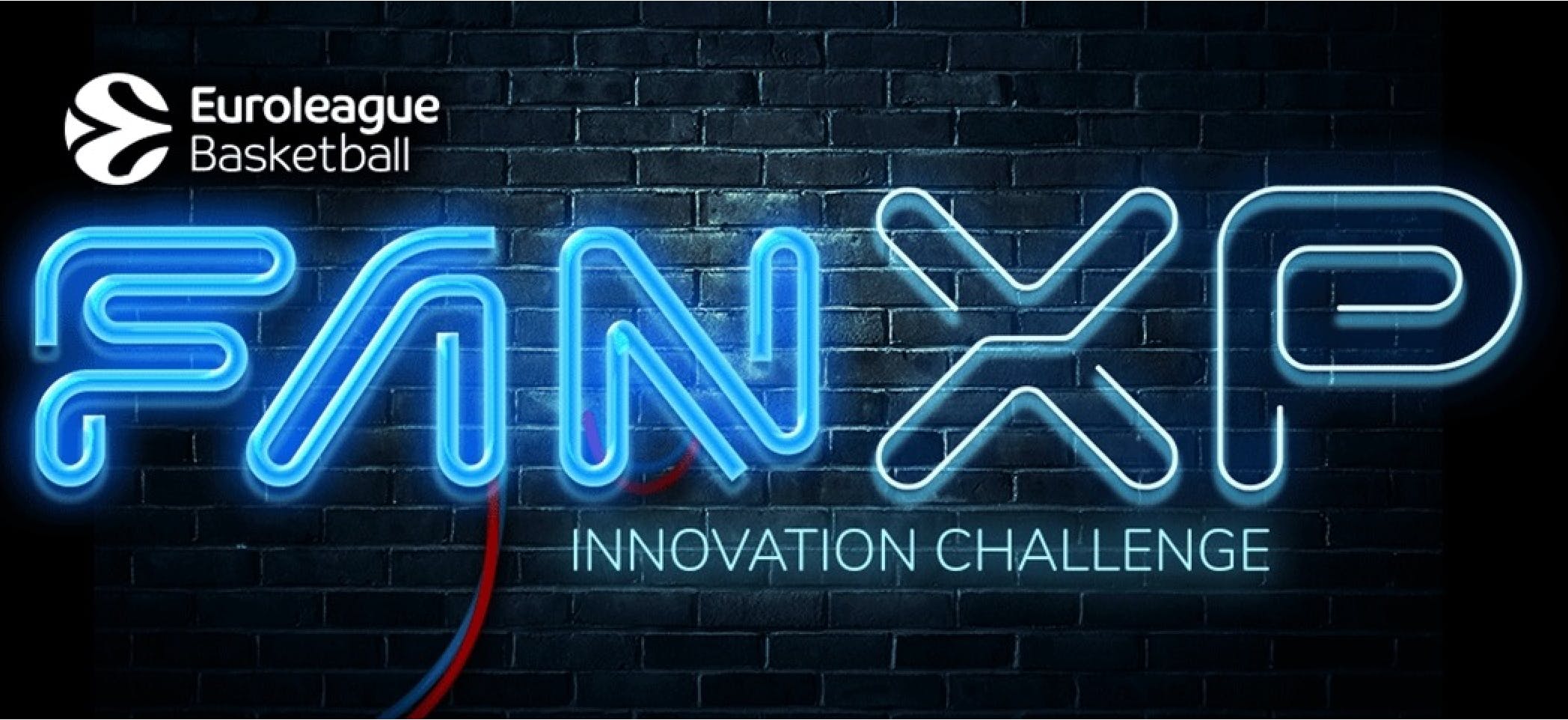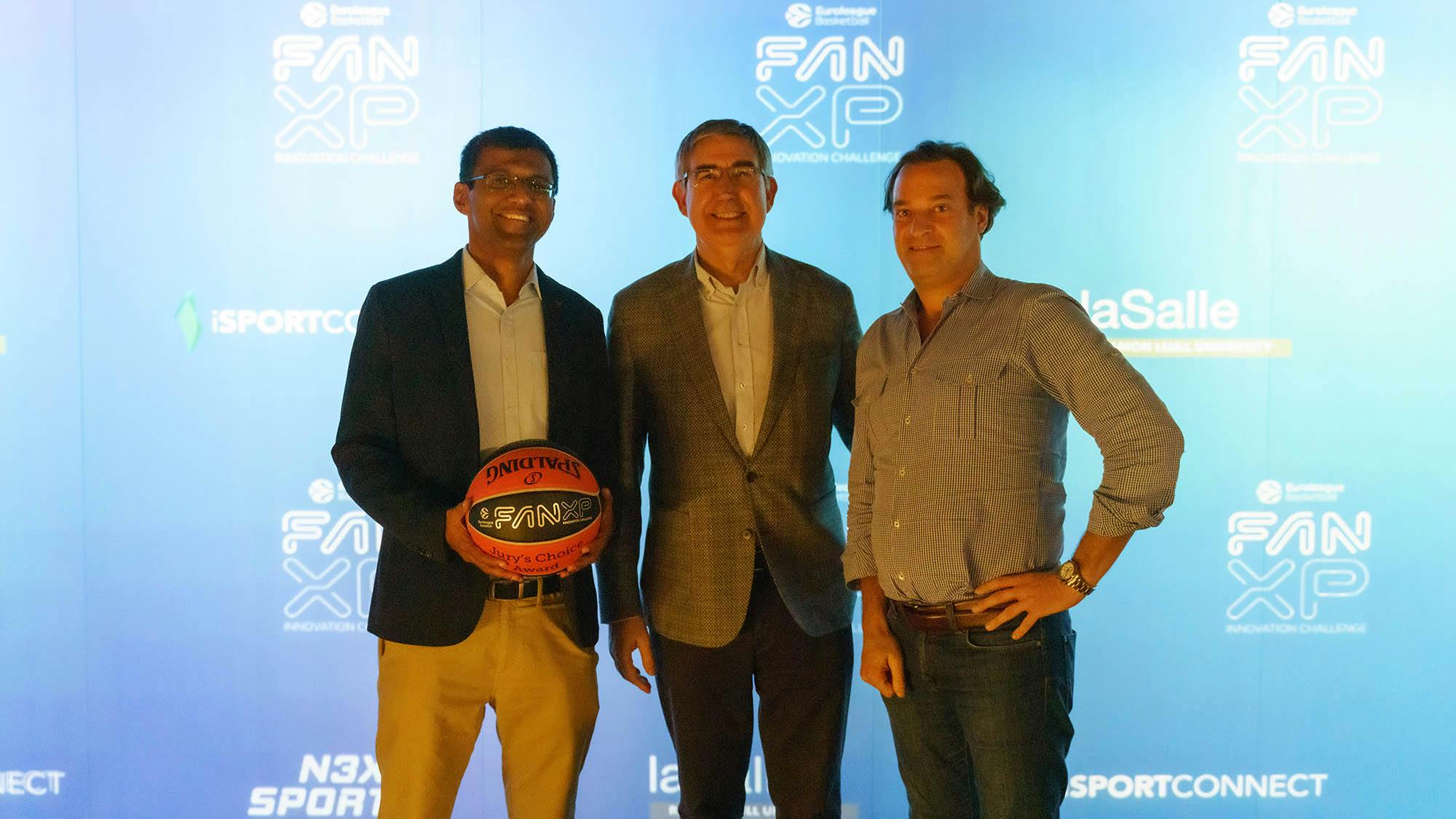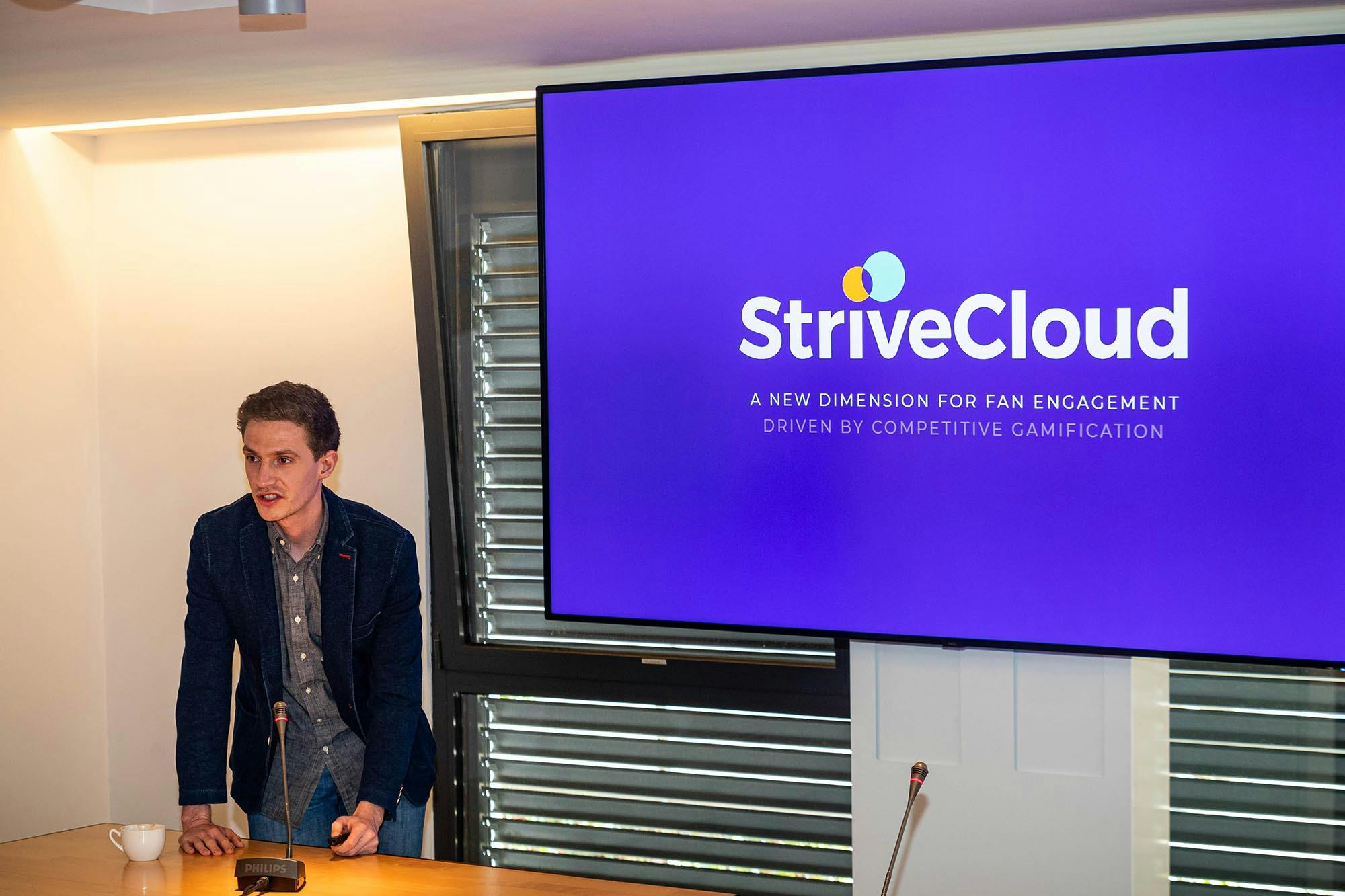In 2000, Euroleague Basketball launched a ground-breaking international competition with a never-seen-before structure. Owned and managed by the clubs, the EuroLeague’s model allowed for agile decision-making and quick adaptation.
Over the past two decades, the innovative spark that brought EuroLeague into existence has matured into a multi-faceted commitment to growth and new thinking. The competition has changed its format, rules and its access criteria on numerous occasions, adapting to new realities and readying itself for whatever the future may hold.
That attitude exists throughout Euroleague Basketball, all the way to Euroleague Basketball president and chief executive, Jordi Bertomeu.
“Every time we launched a major change in EuroLeague, even before it went live, we were already thinking about what was next,” Bertomeu says. “The moment we find ourselves in a comfort zone, thinking that we cannot do any better? That will probably be the moment we are no longer good managers for this league.”
Changes have always been made with a clear direction in mind, building upon previous ones to raise standards, increase quality and promote competitiveness across the league. All of them were made to deliver the best possible basketball experience to EuroLeague fans.
“There’s no time to relax at Euroleague Basketball,” adds Roser Queraltó, Euroleague Basketball’s chief business officer. “The moment you think everything is surprisingly quiet, suddenly someone comes up with a new idea, a new project or a new way of doing things, and the madness starts all over again.”
This commitment to constant evolution means Euroleague Basketball understands the importance of innovation to meeting and exceeding the expectations of fans.
FANXP: Investing in innovation
For sport to keep up with other forms of entertainment, rights-holders must invest time, money and energy into innovations that improve the way fans consume their product. Euroleague Basketball, one of the most inventive sports competitions in the world, continues to do just that.
 Euroleague Basketball’s 2020 FANXP innovation challenge, at Barcelona’s Roca Gallery, saw 10 startups compete for the chance to run a pilot project with the rights-holder. The challenge was to improve the experience of EuroLeague fans at home, on the go, or in the arena.
Euroleague Basketball’s 2020 FANXP innovation challenge, at Barcelona’s Roca Gallery, saw 10 startups compete for the chance to run a pilot project with the rights-holder. The challenge was to improve the experience of EuroLeague fans at home, on the go, or in the arena.
The competition is the latest example of Euroleague Basketball’s wider commitment to innovation in sport. Last year’s SACkathon – a partnership between Euroleague and software company SAP – challenged data scientists to create stories and present new insights about what makes winning basketball.
In 2020, that focus shifted away from the court to the arenas and armchairs of Europe and beyond.
Eighty-four startups applied to the 2020 FANXP in the hope of winning an opportunity to develop their fan-focused product at a EuroLeague event, with 10 finalists selected and then judged by a four-person jury of sports industry and financing experts comprising:
- Luis Vicente, chief executive at Eleven Sports
- Stina Lundgren Högbom, research and outreach manager at the Stockholm School of Economics’s Centre for Sports and Business
- Sree Varma, founder and chief executive of iSportConnect
- Didac Lee, co-founder of venture capital fund Galdana Ventures.
The finalists included companies pitching a range of products and solutions, from fan engagement platforms to virtual reality, second-screen technology, arena concessions solutions and mass participation games.
All 10 finalists received private mentoring sessions with Euroleague Basketball executives and jury members, networking opportunities, pitch coaching and the chance to meet potential investors. However, only one could win the competition.
Edisn.ai takes the prize
Edisn.ai, an Indian fan engagement platform that uses AI-powered player recognition technology to create interactive broadcast overlays and monetisation options, won the jury’s approval and took first prize. The judges were impressed with the product’s core technology, but they were particularly enamoured by its ability to simultaneously serve the needs of fans and rights-holders.
Edisn.ai offers fans an enriched viewing experience by providing video game-esque overlays that display player information and stats, as well as several built-in monetisation options for rights-holders that could incorporate partnerships with brands and betting companies.
The company’s co-founder and chief executive, Ashok Karanth, is a sports industry veteran who has sold rights and run marketing campaigns for Indian Premier League franchises and stadia. As the head of an eight-man team running the company, Karanth’s understanding of both fan-engagement and rights-holders’ needs shone through in the product and proved to be a winning combination.
“I’ve been in the sports industry for 15 years and my background is in marketing and sponsorship. The world is moving toward digital solutions and technology and I thought that if we don’t offer something for that world, we’re going to be left behind,” he says.
“We were able to show Euroleague something innovative and different, which they can use as a pilot and scale up if they like it.”
Lundgren Högbom particularly liked the fan-facing element of the product: “Several companies could have won and the competition was really tight, but the decision has to be intuitive. You could see how edisn.ai can be utilised from different perspectives. As a casual spectator, I would love to be able to watch and immediately see who the players are and see information about them.”
A competition unlike others
When professional sport resumes after the Covid-19 pandemic, Edisn.ai will begin developing a pilot project with Euroleague Basketball, to test the product’s capabilities in a real-life setting. This project could develop into a longer-term partnership, as it has done with previous entrants to Euroleague Basketball innovation contests.
While winning the contest guarantees the chance to work with the rights-holder, it is not a prerequisite. Alex Ferrer Kristjansson, senior director of marketing and communication at Euroleague Basketball, explains that every finalist in a Euroleague Basketball innovation contest has an opportunity to show what it can do.
“After the first two editions of our innovation challenges, we ran a number of pilots and are now in a business relationship with two of the startups that were finalists in those two editions,” he explains. “Hopefully, this year, we’ll get to do more pilots with the startups we just have seen and build lasting relationships for the future.”
For the startups, it wasn’t just the chance of a pilot project with Euroleague Basketball that made them enter. Each startup’s representatives were given one-to-one mentoring by executives and the chance to discuss their product with investors and influential sport business figures.
“I’ve found this startup competition to be unlike several others,” says Víctor Ernesto García Sánchez, co-founder of virtual-reality streaming company YBVR. “When we look at startup competitions, we are competitive by nature and of course we want to win. But we also want a genuine interest from the competition organiser. In this case, we’re getting insights that would normally be impossible to get.
“We’re able to get close with not just Euroleague Basketball but also the judges and the media surrounding the competition. That’s sometimes more valuable than the prize itself.”
For Eyal Gantz, the competition yielded all this and a little more. As the chief technology officer for stadium food and beverage solutions startup Seatserve, Gantz won the ‘Best Pitch’ award and brought Seatserve close to winning the competition. Regardless, Gantz was delighted with the experience.
“Usually when you go to a pitch contest, you arrive, you pitch and you leave. In this case, we’re hanging out with Euroleague executives!” Gantz says.
“The mentoring started before we even got here, via video conferencing with Euroleague Basketball and the people at [sports technology consultancy] Next Sports. They gave us great pointers on what to pitch, what to show off, and that usually doesn’t happen in other pitch contests. They helped us change the pitch again and again, until it finally got to us winning ‘Best Pitch’.”
Taking responsibility
The FANXP challenge is just one element of Euroleague Basketball’s commitment to accelerating innovation throughout its business. The rights-holder believes that by taking a radical attitude toward integrating technology in sport, changes will be seen and felt by both its business partners and fans.
“We’ve always tried to stay curious and look for new ways of doing things – to not be too comfortable,” Ferrer says. “And Jordi Bertomeu, our chief executive, pushes us a lot when we get comfortable!”
He continues: “We decided to reimagine how we could work to identify the technology out there that could help us improve our business, and how we could identify that in a more organised way. That’s why we put together this competition and involved our mentors from the Euroleague Basketball staff.”
Around a third of all Euroleague Basketball staff are now mentoring in some capacity. Some are mentoring individual executives or entire teams of people at Euroleague clubs, while others are involved in mentoring external businesses such as those involved in FANXP.
Most of this mentoring is focused toward improving the fan experience when watching EuroLeague in the arena, at home and on the go. Ferrer says this renewed focus has galvanised the entire company.
“Increasing our focus on the way we engage with our fans has changed the culture of the company as a whole and instilled an entrepreneurial spirit throughout Euroleague Basketball,” he says. “Because we are smaller in size and our ownership structure is more agile, it’s a little easier to try new things, test new things and change direction. Being a giant like the NBA has advantages, but being a little smaller also has big advantages that we want to build on.”
“FANXP is an example of this. We really want to get inspired by these startups and bring something into action. We don’t see it as a marketing platform and it’s not just about learning something. It’s about doing things.”
Taking the initiative
Euroleague Basketball understands that data is the key to delivering a rich, personalised fan experience. By understanding fans on an individual level, the sports industry can begin to deliver content that meets and exceeds their expectations – expectations built on the personalised experiences offered in the film, television and music industries.
Euroleague Basketball believes the most effective method of doing this is through initiatives and partnerships of its own making, rather than via social media marketing and networking.
“We would love to have access to the data of our fans. We would love to be able to communicate with them without intermediaries and in a very personalised way,” Ferrer says. “We hope we can build the right tools to be able to collect that data and to act on that. We want to monitor that data effectively and have a much more personalised relationship with our fans.
“Unfortunately, we’re not there right now. We’ve taken some steps but the social networks – who are partners of ours because they help a lot in creating these communities, reaching out to them and getting our content out there to where they are – aren’t allowing us to get data from our consumers and monetising it in a serious way.”
Companies like edisn.ai can help Euroleague Basketball and the EuroLeague teams better understand the desires of the individual fan: the players they like; the teams they like to watch; how long they tend to watch for; and which partner brands they could be interested in.
Likewise, competitions like FANXP bring those companies to Euroleague Basketball and allow strong, innovative partnerships to be formed.
“What I like about this competition is that it’s almost a guaranteed thing that Euroleague will look at least two or three companies out of the 10 finalists, and that it will tangibly result in some kind of project,” Karanth says.
“To get a platform like this, that really allows you to implement an idea, it’s a once in a lifetime opportunity. If the partnership works, Euroleague will take you to tens of millions of fans.”

